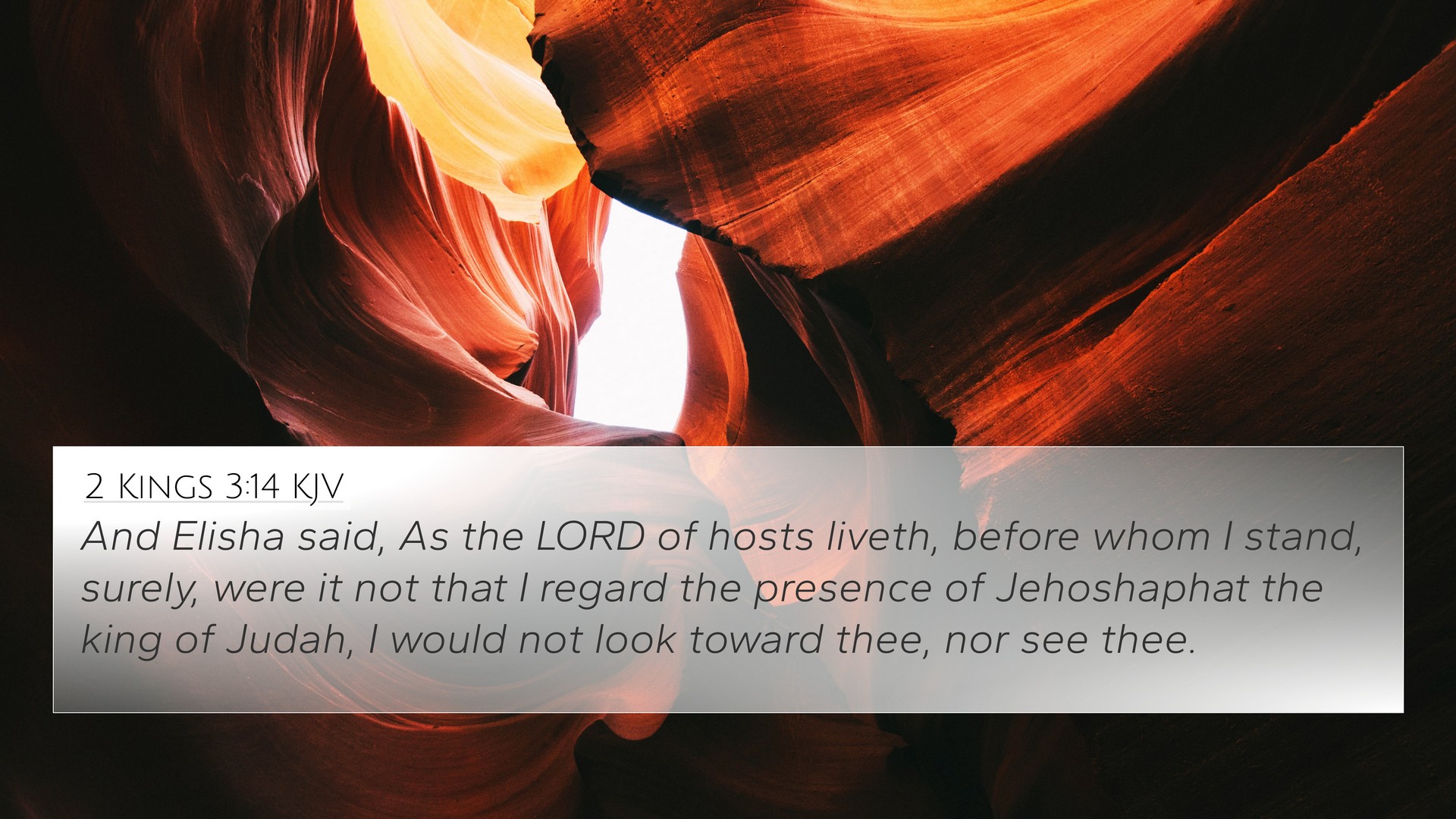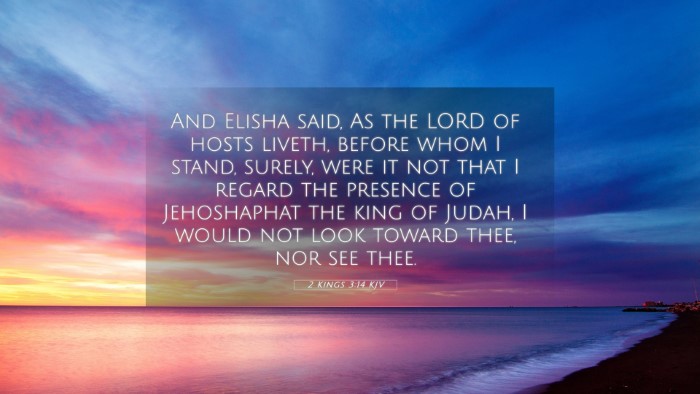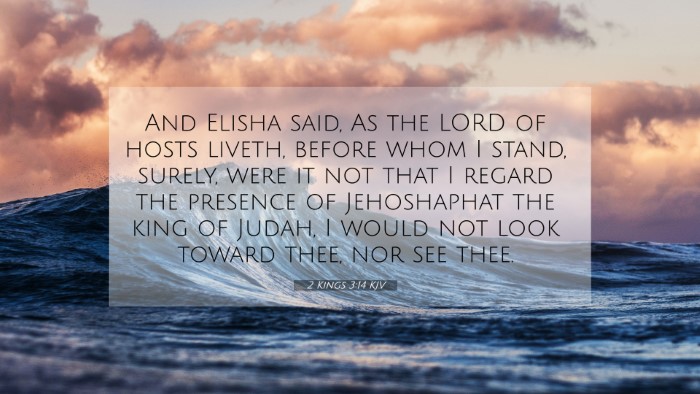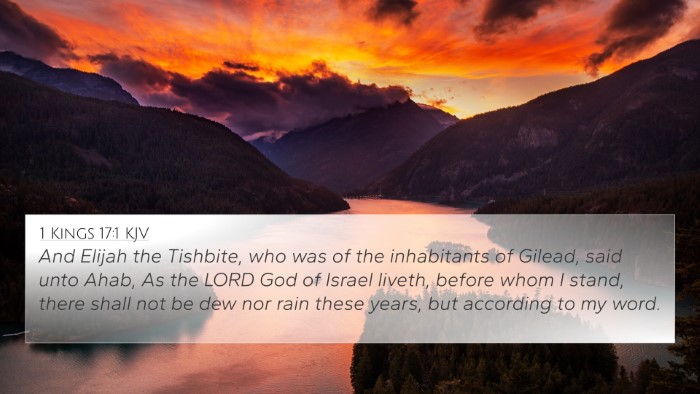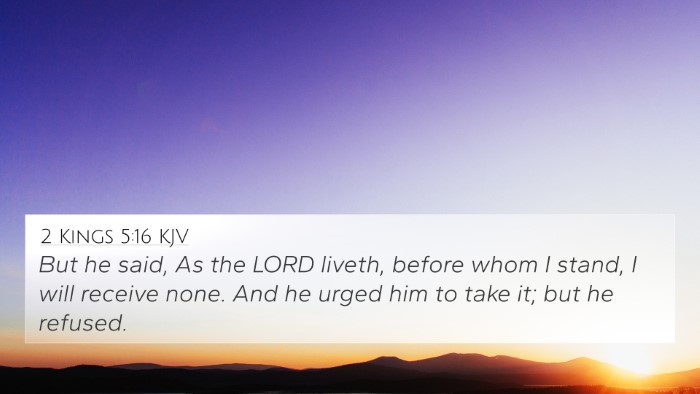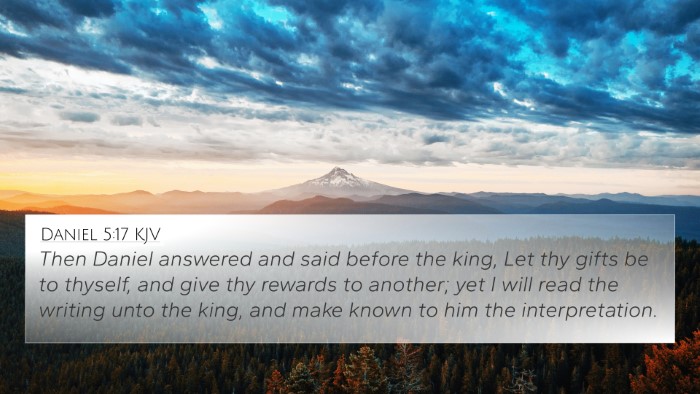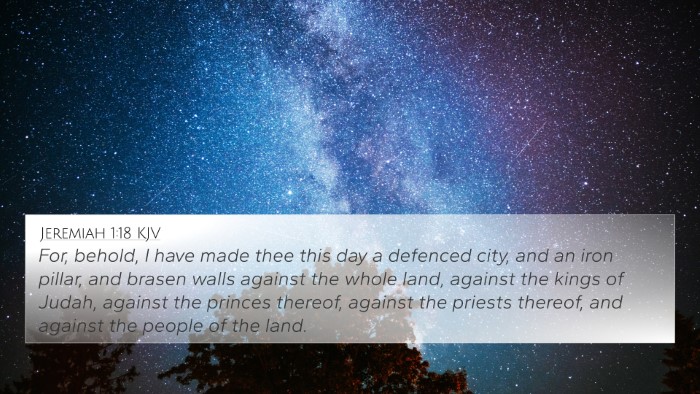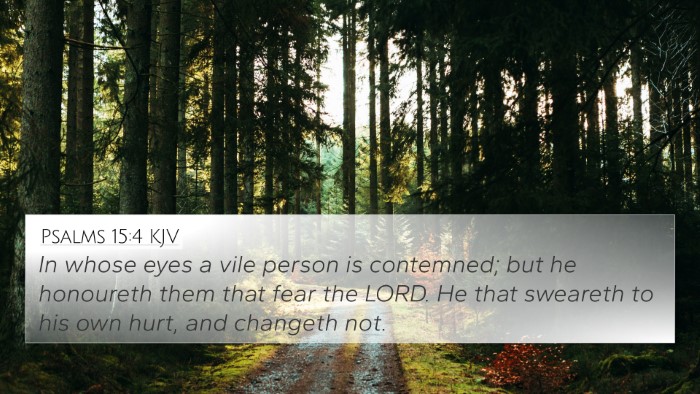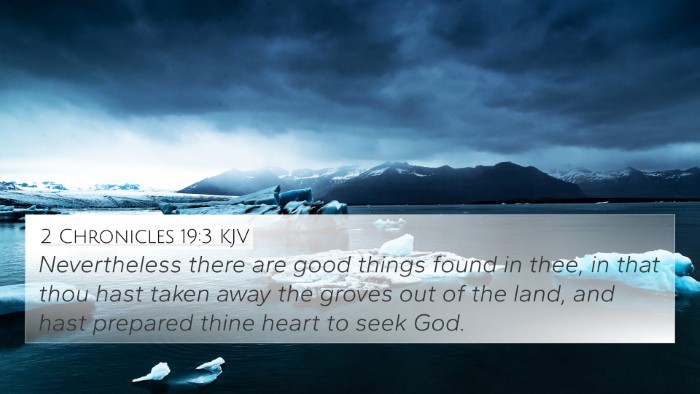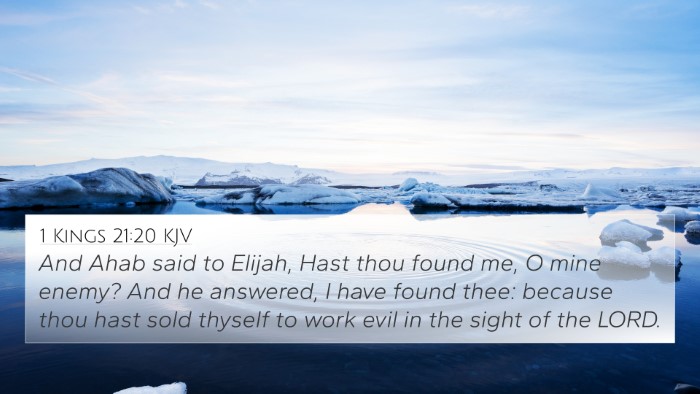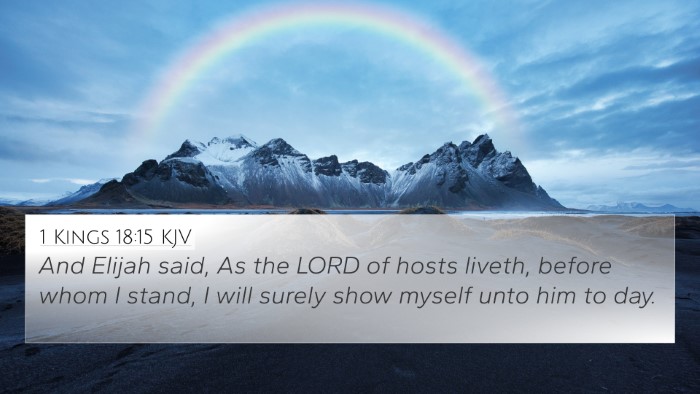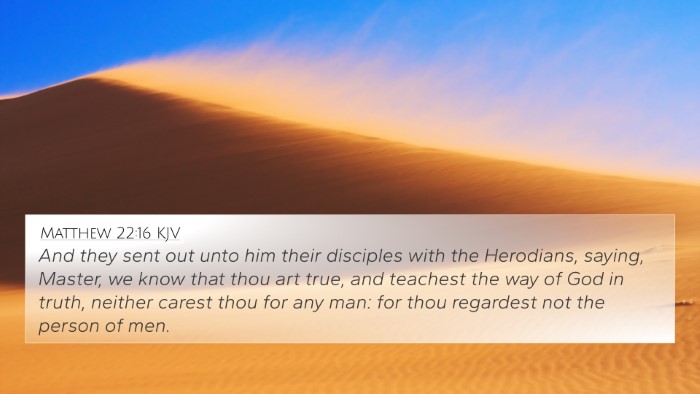Understanding 2 Kings 3:14
In 2 Kings 3:14, the prophet Elisha makes a profound declaration in response to the situation faced by kings of Israel, Judah, and Edom. This verse is significant for its insights into divine prophecy, God's sovereignty, and the role of His chosen instruments in delivering His messages to the people.
Verse Context
2 Kings 3:14 states:
"And Elisha said, As the LORD of hosts liveth, before whom I stand, surely, were it not that I regard the presence of Jehoshaphat the king of Judah, I would not look toward thee, nor see thee."
This declaration emphasizes the importance of the king of Judah's righteousness and his relationship with God. Elisha positions himself as a servant of the Lord, indicating that his prophecies and actions are carried out by divine authority.
Key Insights from Commentaries
- Matthew Henry: Matthew Henry highlights the significance of Jehoshaphat’s presence, suggesting that it influenced Elisha’s willingness to offer assistance. Jehoshaphat's piety amidst the ungodly kings of Israel emphasizes the importance of a righteous leader and the impact of divine favor.
- Albert Barnes: Barnes underscores that Elisha's prophetic insights come directly from the 'LORD of hosts'. This phrase is indicative of God’s all-powerful nature. Elisha's respect for Jehoshaphat serves as a reminder of the value of godly companionship.
- Adam Clarke: Clarke elaborates on Elisha’s disdain for the two other kings, emphasizing that their actions were not aligned with God's will. He connects this to the idea that divine guidance often comes through the righteous and faithful.
Thematic Connections and Cross-References
This verse resonates with several themes throughout the Bible, showcasing God's sovereignty and the importance of a righteous life. Here are some cross-references and their connections:
- 1 Kings 17:1: Both Elijah and Elisha serve as instruments of God's message, affirming the need for prophetic voices amid a disobedient nation.
- 2 Chronicles 20:20: This verse emphasizes the idea of trusting in the Lord, as Jehoshaphat did, which is crucial for receiving God’s guidance.
- Isaiah 30:1: The warnings against seeking help from earthly means instead of turning to God reflects the same theme present in the actions of Israel's kings.
- Matthew 7:7-8: This New Testament teaching on asking God for guidance shows a continuity in God’s willingness to provide for those who seek Him earnestly.
- James 5:17: This verse reminds us of the power of a righteous person in prayer, paralleling Elisha’s role as a prophet.
- 1 Thessalonians 5:25: The importance of prayer for leaders echoes the necessity of piety and divine favor illustrated in Elisha’s response.
- 1 Peter 3:12: The connection between God's ears being attentive to the prayers of the righteous relates to Elisha's prophetic insight regarding the kings.
- Proverbs 15:29: This verse reflects God's distance from the wicked, similar to how Elisha initially refused help until considering Jehoshaphat.
- Romans 13:1: God's authority extends through earthly leaders, showcasing the relationship between divine authority and human leadership exemplified in this passage.
- Hebrews 13:17: This verse emphasizes the importance of following leaders in faithfulness, parallel to how Jehoshaphat’s faith in Elisha was pivotal.
Practical Applications and Reflections
Understanding this verse can lead to profound personal reflections and applications:
- **Importance of Righteous Leadership**: One should consider the impact of their leadership on their community and how a righteous life influences others.
- **Seeking Divine Guidance**: The necessity of prayer and seeking God’s direction, especially in times of crisis, remains relevant today.
- **The Role of the Prophet**: Recognizing that God uses various means to communicate His will helps individuals appreciate the prophetic nature of Scripture and its timeless relevance.
- **Faithful Companionship**: Surrounding oneself with godly influences, as seen with Jehoshaphat, is crucial for spiritual growth and discernment.
Conclusion
2 Kings 3:14 is a powerful reminder of God's sovereignty and the significance of righteous leadership. By understanding and reflecting on the connection between various scriptures, believers can deepen their faith and enhance their spiritual journey.
